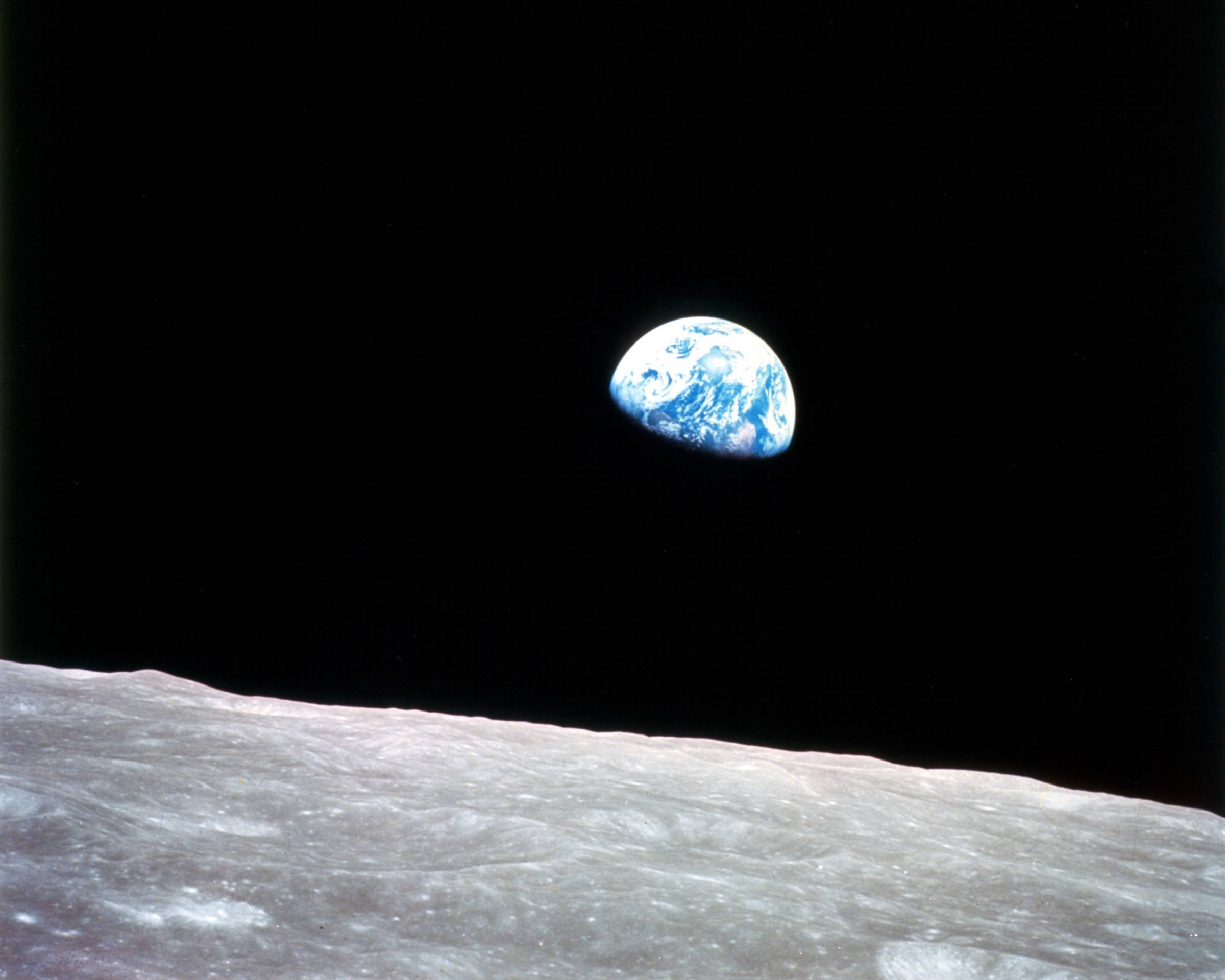The Origins of the Universe: Understanding the Big Bang Theory
Posted By Visitor Analytics & SEO Tools Robert on 15-06-2024 22:11:27

Description
The Big Bang Theory stands as one of the most widely accepted explanations for the origins of the universe. This theory proposes that the universe began as an infinitely small, dense point and has since expanded to its current vast scale over billions of years. Understanding the Big Bang Theory involves delving into the fundamental principles of cosmology, exploring the events that unfolded in the early universe, and examining the evidence that supports this groundbreaking concept. By unraveling the mysteries of the Big Bang, we gain insights into the formation of galaxies, stars, and the very fabric of the cosmos itself.
Introduction to the Big Bang Theory
Ah, the Big Bang Theory - not the TV show, but the mind-blowing concept that explains the origins of our universe. In this theory, the universe began as a singularity, a super hot and dense state, and then boom - it rapidly expanded and continues to do so.
Definition and Basics
In simple terms, the Big Bang Theory suggests that about 13.8 billion years ago, all the matter and energy in the universe was concentrated into an incredibly tiny point, then exploded outward. This explosion set off a chain of events leading to the formation of galaxies, stars, planets, and us.
Historical Context
While the idea of an expanding universe was hinted at by astronomers in the early 20th century, it was Georges Lemaître who first proposed the concept of a cosmic explosion in 1927. Initially met with skepticism (as all good ideas often are), the Big Bang Theory gained solid footing with the discovery of cosmic microwave background radiation in the 1960s.
The Early Universe: Before the Big Bang
But wait, what existed before the Big Bang? The concept of nothingness or even a multiverse may make your brain hurt a bit. Let's explore some icy cool pre-Big Bang concepts and the mind-bending theory of cosmic inflation.
Pre-Big Bang Concepts
Before the Big Bang, time and space as we know them didn't exist - just a singularity with infinite density. Some theories even suggest that our universe is just one of many in a vast multiverse.
Cosmic Inflation Theory
To explain why the universe appears so homogeneous and isotropic on a large scale, scientists proposed cosmic inflation. This theory suggests that the universe underwent a rapid expansion in a fraction of a second after the Big Bang, smoothing out any irregularities and setting the stage for the formation of galaxies and cosmic structures.
The Big Bang Event: A Cosmic Explosion
Let's get explosive! The Big Bang was like the ultimate fireworks display, but instead of glitter and colors, it created everything we know and love in the cosmos. Here are the juicy details of this mind-blowing cosmic event.
Key Elements of the Big Bang Theory
The Big Bang Theory is supported by key pieces of evidence such as the cosmic microwave background radiation, the abundance of light elements like hydrogen and helium, and the redshift of galaxies moving away from us.
Timeline of the Big Bang
Around 13.8 billion years ago, the universe went from being smaller than an atom to expanding at an unimaginable rate. Over time, matter cooled, condensed, and formed galaxies, stars, planets - and eventually, you sipping your morning coffee while contemplating the universe.
Expansion of the Universe: Evidence and Implications
As if the Big Bang wasn't mind-blowing enough, the ongoing expansion of the universe offers even more mind-bending discoveries. Let's delve into Hubble's Law, redshift, and the echo of the Big Bang - the cosmic microwave background radiation.
Hubble's Law and Redshift
In the 1920s, Edwin Hubble observed that galaxies are moving away from us, with those farther away moving faster. This relationship between a galaxy's distance and its velocity (redshift) provides strong evidence for the expanding universe.
Cosmic Microwave Background Radiation
Imagine catching an echo from the dawn of time - that's what the cosmic microwave background radiation is. This faint glow is the afterglow of the Big Bang, now stretched into the microwave part of the electromagnetic spectrum. Its discovery in the 1960s provided undeniable evidence for the Big Bang Theory, cementing our cosmic origin story.
Formation of Stars and Galaxies
When it comes to the universe, think of it like a grand cosmic kitchen where stars and galaxies are the main dishes. Nucleosynthesis, the process of creating elements, is like the ultimate recipe that makes everything from helium to iron possible. As stars form and galaxies twirl into existence, it's a celestial ballet that brings order to the cosmic chaos.
Cosmic Microwave Background Radiation
Imagine stumbling upon a cosmic relic, something like finding your grandma's vintage hat in the attic but on a much grander scale. The discovery of the Cosmic Microwave Background Radiation (CMBR) was like stumbling upon the universe's baby picture. This radiation holds the secrets of the early universe, whispering tales of the Big Bang and how it all began.
The Evolution of the Universe: From Big Bang to Present
Fast forward from the big bang, and you'll witness the grand story of the universe unfolding before your eyes. From the formation of galaxies to the cosmic web that connects all things, it's like a cosmic soap opera with dark matter and dark energy playing the mysterious characters that keep us on the edge of our seats.
Current Research and Future Discoveries
In the ever-curious world of cosmology, researchers are like cosmic detectives, always on the trail of new discoveries. From studying the mysteries of dark matter to peering into the depths of the universe, there's no shortage of cosmic puzzles waiting to be solved. So grab your telescopes and buckle up for the cosmic ride of a lifetime!As we conclude our exploration of the Big Bang Theory, we are left with a profound appreciation for the intricate mechanisms that have shaped the universe as we know it today. From the initial explosion that set everything in motion to the ongoing expansion and evolution of galaxies, the story of the universe is a testament to the awe-inspiring power of science and human curiosity. While many questions still remain unanswered, the quest to unravel the mysteries of the cosmos continues, driving us to further discoveries and a deeper understanding of our place in the vast expanse of space and time.
Frequently Asked Questions
What is the evidence supporting the Big Bang Theory?
The Big Bang Theory stands as one of the most widely accepted explanations for the origin and evolution of the universe. This cosmological model proposes that the universe began as a singularity and has been expanding ever since, supported by a wealth of compelling evidence from various branches of science. From the discovery of the cosmic microwave background radiation to the observed redshift of distant galaxies, the Big Bang Theory has gained substantial credibility over the years. In this article, we delve into the key pieces of evidence that bolster the Big Bang Theory, shedding light on the profound implications it holds for our understanding of the cosmos.
How did the Big Bang Theory originate?
Just as there are different flavors of space ice cream, there are alternative theories to the Big Bang. From the steady state model to brane cosmology, these rival theories offer their own interpretations of the universe's origins and evolution.In conclusion, the Big Bang Theory remains a cornerstone of modern astrophysics, shaping our comprehension of the universe's beginnings and trajectory. Through ongoing research, technological advancements, and theoretical refinements, scientists continue to delve deeper into the mysteries surrounding the cosmic event that birthed our reality. As we reflect on the origins and evolution of the Big Bang Theory, we are reminded of the awe-inspiring complexity and beauty of the cosmos, inviting us to ponder our place within the vast expanse of space and time.
What role does cosmic microwave background radiation play in understanding the Big Bang?
Are there any alternative theories to the Big Bang that scientists are exploring?
Tags: big bang
Related Blogs
Way google penalized website for Ninja Backlinks?
600+ Profile Creation Sites List in 2025
5 Best Web Directories Still Available Today
7 Men's Clothing Essentials To Maximize Style Statement
Benefits of using electronic cigarettes
Ratings & Review
Popular Blogs
Free for dev - list of software-2 (SaaS, PaaS, IaaS, etc.)
Developers and Open Source authors now have a massive amount of services offering free tiers, but it can be hard to find them all to make informed decisions. This is a list of software (SaaS,...
Free for dev - list of software-3 (SaaS, PaaS, IaaS, etc.) (SaaS, PaaS, IaaS, etc.)
Developers and Open Source authors now have a massive amount of services offering free tiers, but it can be hard to find them all to make informed decisions. This is a list of software (SaaS,...
Free for dev - list of software-1 (SaaS, PaaS, IaaS, etc.)
Developers and Open Source authors now have a massive amount of services offering free tiers, but it can be hard to find them all to make informed decisions. This is a list of software (SaaS,...
Recently Added Blogs
Free Link Indexer
Link indexing plays a crucial role in the realm of search engine optimization (SEO) by facilitating the discovery and recognition of backlinks, fundamental components that contribute to a website's...
VMware Workstation Player
VMware Workstation Player allows you to create and run your own virtual machines and evaluate software distributed as a virtual appliance from many software vendors available from...
Name, Address, and Phone (NAP) information across online directories
In the digital age, a business's online presence plays a crucial role in attracting customers and establishing credibility. One essential aspect of this online presence is the Name, Address, and...
Login to your Be found - Be connected account

Sign in by Email
No Account yet? Click here to signup
Already have an account? Sign In
FEEDBACK / SUGGESTIONS
Give us your valuable feedback to make website more user friendly


Leave your details below







